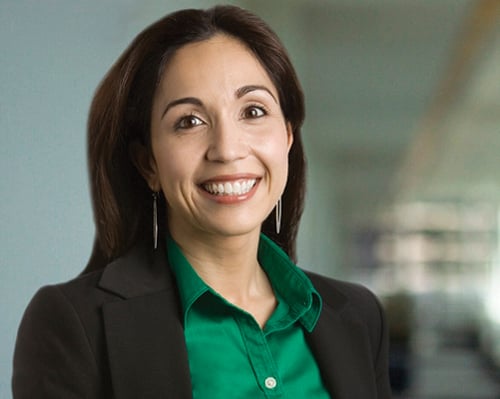

While digital technology has never been viewed as a passing phase in the financial services industry, the pandemic and resulting lockdowns have underscored the myriad ways financial advisers can and should leverage technology to its fullest.
Speaking Wednesday at the InvestmentNews Future of Financial Advice summit, Charles Schwab’s chief digital officer Neesha Hathi said resistance is futile when it comes to technology and digital communications.
“This is the opportunity to say to clients, ‘The way we do this is digital,’” Hathi said.
Hathi said 2020 will stand out as a year that has pushed the financial services industry, sometimes kicking and screaming, toward more digital engagement.
And while some clients, especially younger investors, have eagerly embraced the increased reliance on digital communications and platforms, there should still be ways to engage and work with clients who might not be as tech savvy. The key, Hathi said, is to use this time to convert as much of the financial planning business as possible to a digital format.
“Think about how you do quarterly meetings and all the other touch points where you could make it digital by default,” she said, underscoring the effort to introduce clients to the idea that your firm is digitally focused.
“By digitizing the things you can, it frees you up to do more of the things that can’t be digital,” Hathi added. “Then you can think about how to use your human capital.”
While the trend toward a more digital planning experience might help advisers create scale, Hathi said it can also lead advisers away from customization, which is something clients increasingly expect from advisers.
“Value added services are on the rise across the RIA industry, but I worry about how we scale some of these capabilities for clients,” she said.
Hathi cited Schwab research showing that 87% of consumers said they would purchase a product because the company advocated for an issue the consumer cares about. That illustrates an opportunity for advisers to specialize.
“Investors expect deeper personalization,” Hathi said. “That creates a little paradox because personalization is not always scalable, but the trick is to figure out how to do this in a way that is scalable by leveraging technology.”
Hathi cited direct indexing and separately managed portfolios as examples of ways advisers can leverage technology to create value-added personalization.
Clearly the current digital wave was boosted by the pandemic-forced lockdowns, but as Hathi explains it, the momentum of 2020 makes it the perfect time for advisers to adapt.
According to Schwab data, it's seen a 250% increase in digital transactions over last year, and 61% of advisers say they are adopting new technology at a faster rate than they were before COVID-19.
“That change is going to stick, and we’ll see a lot of new innovation coming out of this period,” Hathi said.

Recruited assets, organic growth both powered ahead

Goldman Sachs' Padi Raphael, Global Co-Head of Third-Party Wealth, said the "door is always open" regarding a potential RIA referral program, as the firm looks to serve the "mega trend" of growing wealth from independent advisors.

UBS research finds lack of planning and communication as key challenges for high-net-worth widows and next-generation women in navigating inheritances.

The proposed "all markets" fund is structured to enable quarterly redemptions, driven by investments in public equities, fixed income, and private market assets.

The firm has been dogged by compliance issues for years, resulting in multiple fines by various regulatory bodies.
From direct lending to asset-based finance to commercial real estate debt.
RIAs face rising regulatory pressure in 2025. Forward-looking firms are responding with embedded technology, not more paperwork.
